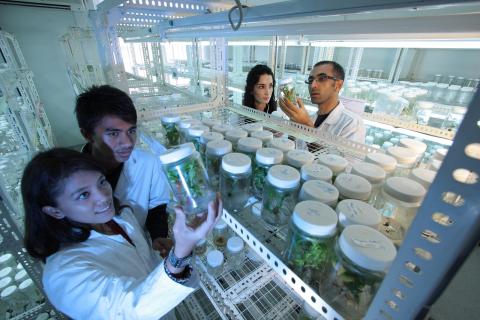Populist attitudes pose a serious challenge to the status of science in society, as they deny the veracity of scientific knowledge and the legitimacy of scientists and their institutions. In recent years, there has been growing concern about the questioning of the authority of science and a possible increase in public distrust of scientists. For example, populist figures such as Donald Trump have suggested that the ‘natural instinct’ and ‘common sense’ of ‘ordinary people’ are superior to ‘useless’ scientific knowledge. For his part, Argentinian president Javier Milei recently claimed that the caste is also ‘so-called scientists and intellectuals, who believe that having an academic degree makes them superior beings’.
A new study brings together the results of a survey, carried out by the Spanish Foundation for Science and Technology (FECYT), on a sample of the Spanish internet-using population of almost a thousand people, which explores trust in scientists, perceptions on climate change, vaccines or the relationship between science and politics, and, for the first time, the level of scientific populism in Spain and the factors related to it. A briefing held by the Science Media Centre this week was attended by the two co-directors of the study to explain the results.
‘Scientific populism is an attitude that refers to the antagonism that exists between scientific evidence and the knowledge of ordinary people,’ summarised Celia Díaz Catalán, a researcher at the Complutense University of Madrid. She gave as an example certain attitudes towards nutrition: ‘They are telling me not to eat sugar, but I've been eating it all my life, now is the doctor going to tell me what to do? It is common to hear this, although there are studies that show that sugar consumption increases the risk of certain diseases.
‘In Spain we have observed between 1 and 3% of people who would be at the top of the populism scale,’ warned Pablo Cabrera Álvarez, a researcher at the University of Essex (UK). The study does not allow us to analyse the evolution of these attitudes over the years, but the authors defended the importance of measuring them in order to understand how the current context of political polarisation may increase them in the future.
Independent reaction to the report
Ana Muñoz van den Eynde, senior scientist at Public Research Organisations and head of CIEMAT's Science, Technology and Society Research Unit, assessed the work in an independent reaction published by SMC: ‘People seem to want scientific knowledge to be taken into account, but they do not seem to want those who are dedicated to obtaining it to have a connection with politics. I find this worrying because it makes me think that the public still conceives of scientists as distant and detached from the real world, with which they should have no connection in order not to be ‘corrupted’. And I find this worrying.




